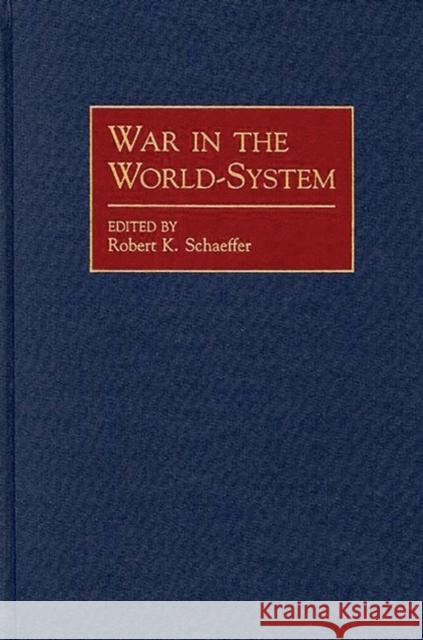War in the World-System » książka
War in the World-System
ISBN-13: 9780313254291 / Angielski / Twarda / 1989 / 144 str.
This interdisciplinary study provides a broad conceptual and factual base for a deeper understanding of the social, political, and economic forces that contribute to war and peace in the modern world. Focusing on war as an integral part of the political and economic development of the capitalist world-economy, the authors offer critiques of modern conflict theories and in-depth empirical analyses of war in the world-system during the past 400 years. Schaeffer's introductory chapter assesses theoretical approaches to the study of war from a world-system perspective. The historical relationship between economic development and war in the interstate system is explored on several levels. The emergence of the world-system is discussed, and the history of its globalization through diplomacy, aggressive trade expansion, conquest, and war is outlined. The authors examine the changing structure of political relations in the interstate system, and look at the connections between military conflict and political and economic developments within individual nations.The threat of nuclear war is considered, particularly as it shapes the world-system through deterrence ideology and the deployment of massive superpower nuclear arsenals. Other topics addressed are the relationship between militarization and national development, the origin and character of military-industrial complexes, the waging of war by absolutist states, and the impact of economic fluctuations on military expenditures and international relations. Drawn from a recent conference on War in the World-System, the studies in this book distill some of the most original and innovative thinking in the field. An appropriate choice for courses or research in war and peace studies, political economy, development, international relations, and allied disciplines.











